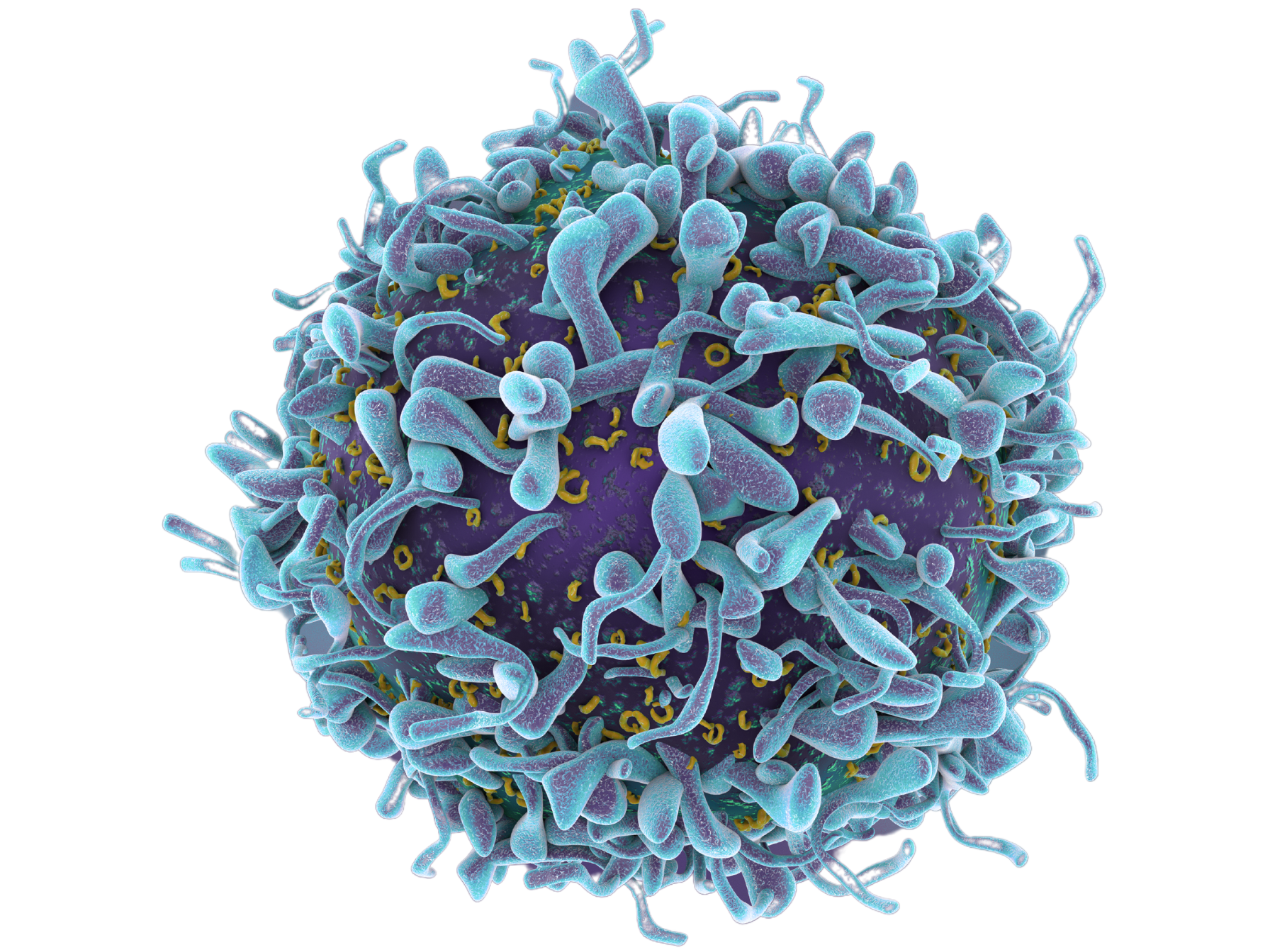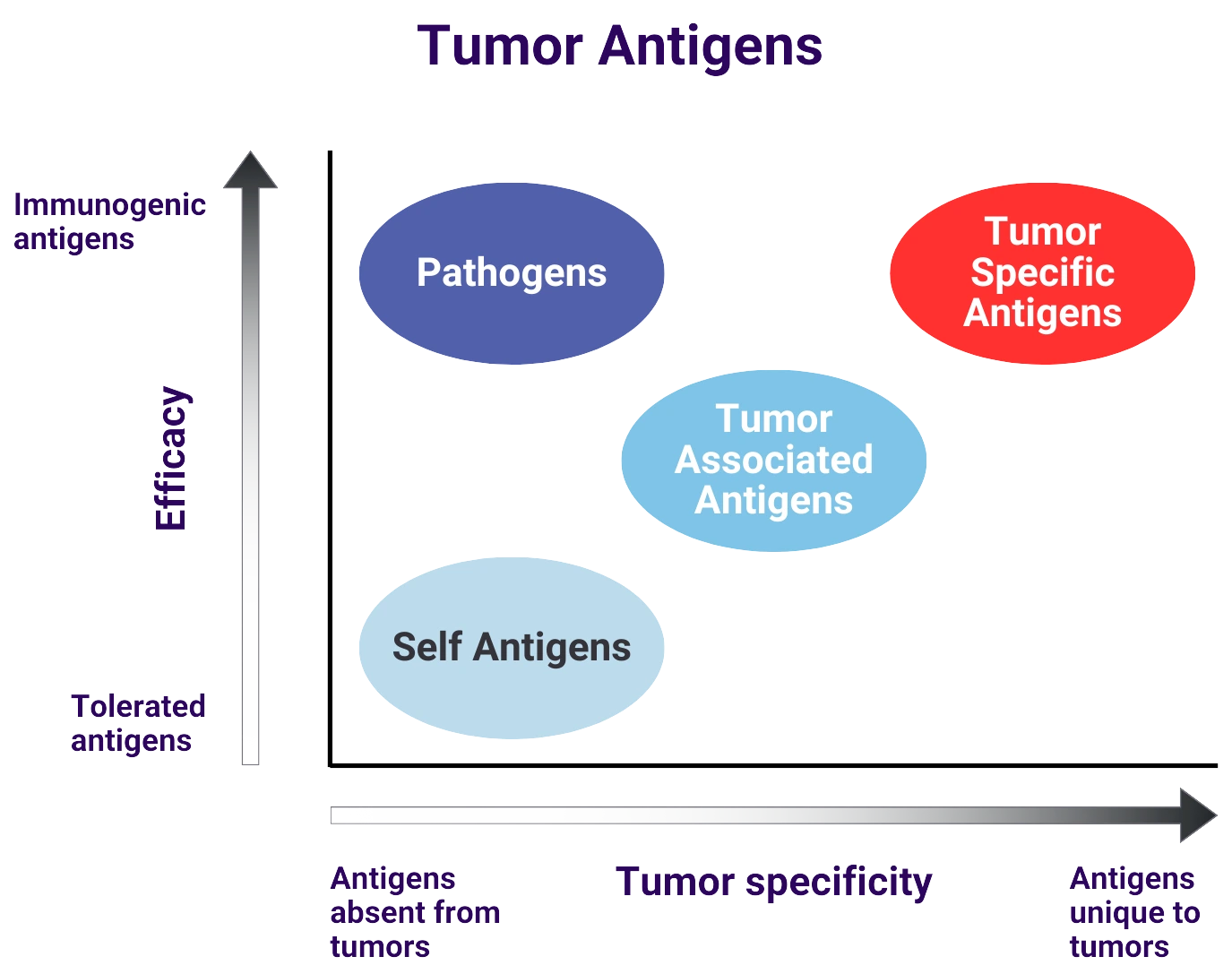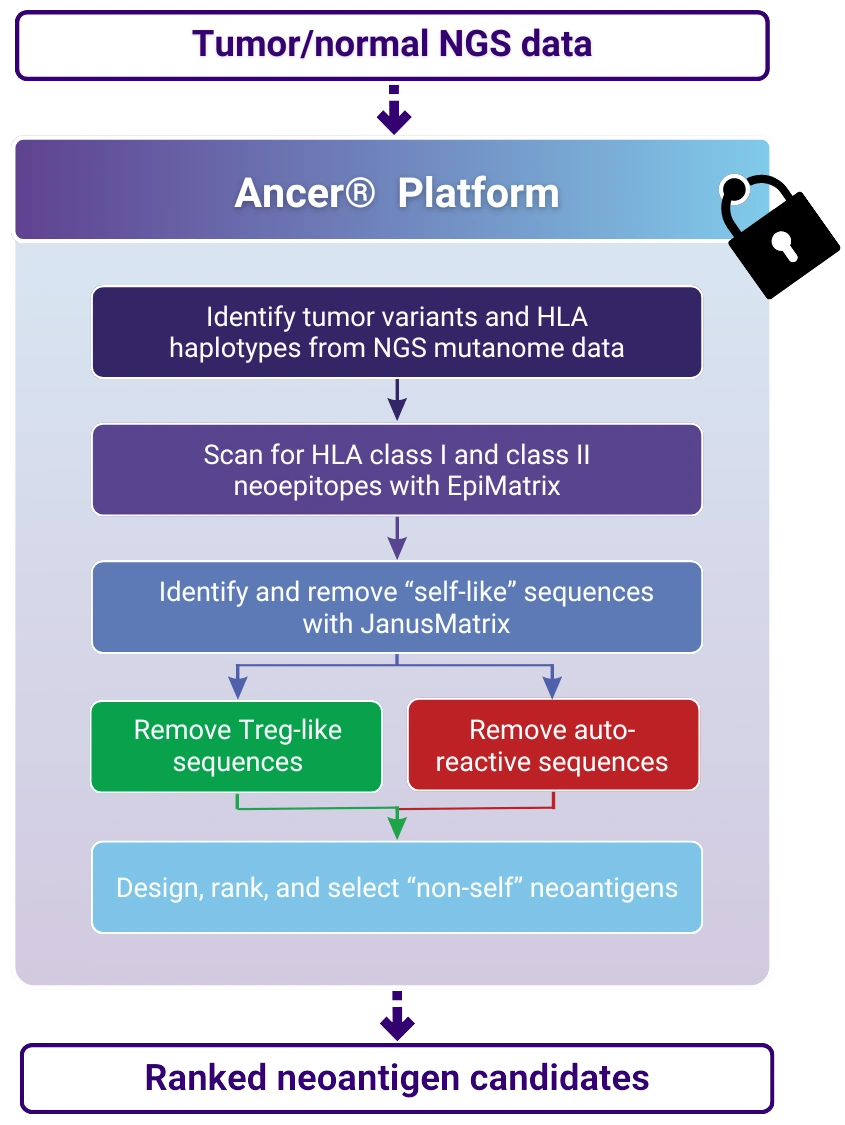The “Answer” to Cancer
The Neoantigen Revolution.
The field of cancer therapy has been transformed in less than a decade by the approval of checkpoint inhibitors, the advent of next-generation sequencing (NGS) methods for identifying tumor mutations, and the realization that neoepitopes are the primary targets of effective immune responses following checkpoint inhibitor therapy. The critical observation that the breadth of each patient’s immune response to the unique mutations or neoantigens in their tumor correlates directly with survival has led oncologists to focus on driving immune responses to these neoantigens through vaccination. These advancements have fueled the revolutionary idea that nearly every cancer patient could benefit from the immune boost provided by a neoantigen-driven, personalized cancer vaccine (NEO-PCV).
Oncology has entered the era of precision immunotherapy, where cancer vaccine development is undergoing a paradigm shift.


Design superior therapies through AI
Ancer® is an end-to-end, automated neoantigen identification and personalized cancer vaccine design platform available for licensing. Integrating multiple advanced algorithms into a single pipeline to rapidly design custom therapies for individual cancer patients, it uses each patient’s own tumor genome sequence as the starting point.
The Ancer® platform is built upon EpiMatrix® and JanusMatrix, two extensively validated in silico tools, and analyzes individual cancer mutanomes to identify the most immunogenic CD8 and CD4 neoepitopes while excluding potentially tolerogenic epitopes that may reduce vaccine efficacy. The presence of a mutation alone is not sufficient to generate a protective immune response; Ancer® accounts for the differences between the natural (human genome) sequence and the mutated sequence at the T cell epitope level, crucial for rapidly creating precision cancer vaccines and predicting survival outcomes.
Recent publication: Neoantigen-based personalized cancer vaccines: the emergence of precision cancer immunotherapy. Expert Review of Vaccines. 2022.
The Ancer® Pipeline
Tumor/normal Next Generation Sequencing (NGS) data is inputted in Ancer®, which first identifies somatic variants and HLA types of the patient. Mutations are processed with EpiMatrix® to identify ones that generate HLA class I or HLA class II neoepitopes.
Neoepitopes are then refined with JanusMatrix to remove sequences capable of eliciting regulatory T cells or other deleterious cross-reactive T cells. Neoantigens containing multiple neoepitopes are then automatically designed by the platform and subsequently ranked using proprietary parameters. The Ancer® pipeline is a locked process aimed at minimizing human and manual interventions.
